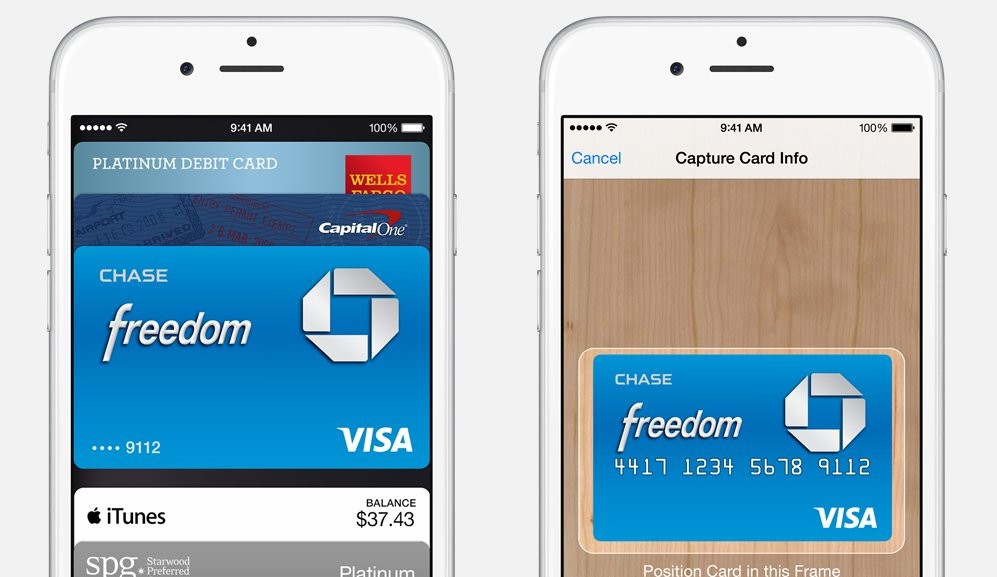
Apple has introduced their new payment service, Apple Pay. Apple has created a new option to replace the 'archaic' method of making payments with a credit or debit card by adding a new secure, convenient, and expedited method to its new iPhones.
Apple Pay will work by authorizing your account via a payment terminal. The system functions by making a payment authorization through the TouchID sensor. The process takes less than a second. There is no need to swipe a card or sign for a transaction. The process is seamless.
Apple Pay will be available on the iPhone 6 and the iPhone 6 Plus. The newly added NFC sensor will interact with registers equipped to support Apple Pay by initializing a secure and encrypted interaction. Although Apple may already have your credit card information stored in your existing Apple account, adding a card is easy. Simply use your iSight camera, take a picture of the card, and once it is verified with your bank, it will be added to Passbook for future use.
Perhaps, the most important security feature of Apple Pay is that the credit card numbers are not stored on the device or shared with the merchant. The payment is made using a dynamic security code. The dynamic code is used for each interaction, making it more secure than the traditional means of credit card payment.
The payment system will be available at various food and merchants. McDonald's, Whole Foods Market, Disney theme parks will just be a handful of the partners that will be involved. The payment system can also be used online. Instead of filling out tedious forms, the new payment system will allow one-touch checkout.
A majority of these payment options will be available in October with many to be added before the end of the year. Apple will release an Apple Pay API that will allow developers to incorporate the system into their own payment ecosystems. The company is working with VISA, American Express and MasterCard, as well as with leading US banks.
For those concerned about privacy, Apple reassures customers that it "doesn't know what you bought, where you bought it or how much you bought it for". It adds: "We're not in the business of collecting your data" - a less-than-subtle dig at Google.
Source: Apple | Image via Apple

















126 Comments - Add comment